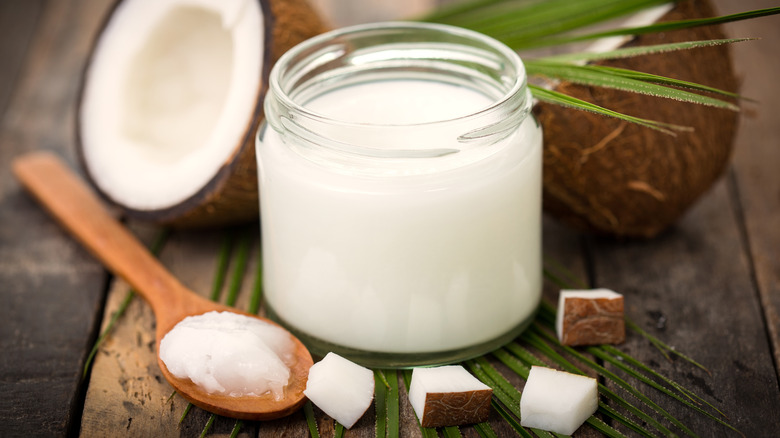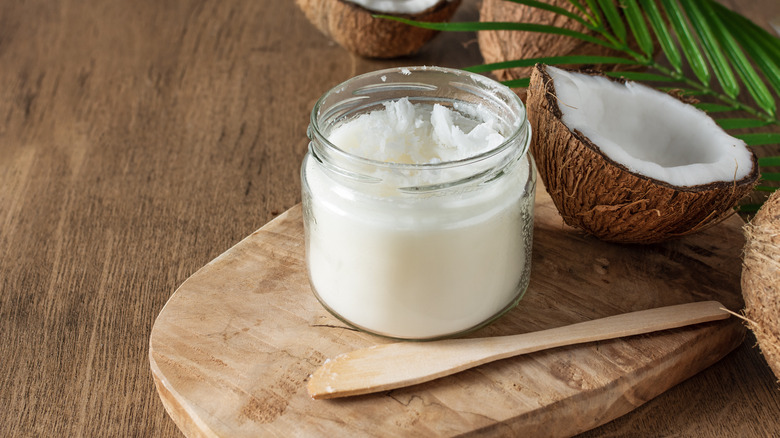Unrefined Coconut Oil Vs. Refined: What's The Difference?
Coconut oil can be a lifesaver: Out of butter? Substitute it for coconut oil. Dry hair? Use it in a DIY hair mask. Quick at-home salad dressing? Add some coconut oil to your mixture (via Healthline). It's no doubt that keeping a jar of coconut oil inside of your pantry will come in handy one day. But, with so many different kinds on the shelves, it can be hard to choose which is best — especially with all of its potential uses.
From partially hydrogenated to not hydrogenated and from cold-pressed to expeller-pressed coconut oils, figuring out which is right for the job can be a daunting decision. However, when it comes to cooking with coconut oil that's unrefined or refined, the difference is simple — and it's all in the name. As it turns out, the processing behind each creates a difference you can taste, deciding between the two an easy choice.
Processing and taste
Choosing between unrefined coconut oil and refined coconut oil is really a matter of taste preference. As the name suggests, the processing that goes into unrefined coconut oil is kept to a minimum. Sometimes referred to as virgin or pure coconut oil, Harvard explains that unrefined coconut oil utilizes the fresh meat from matured coconuts. Using minimal heat, the coconut meat is either dried or pressed fresh, creating an oil that conserves the coconut's aroma, flavor, and nutrients (via Epicurious). Unrefined coconut oil is ideal for those who enjoy the slightly sweet, nutty taste of coconut — making it the perfect candidate for baking or amping up the flavor in your coconut curry.
Alternatively, refined coconut oil varieties undergo more processing. By using high heat, the dried meat of the coconut is refined to remove impurities and bacteria. Throughout the high heat process, the oils of the coconut are deodorized to remove all of the coconut's distinct flavors and scents, creating a neutral-tasting product with a higher smoke point. This makes refined coconut oil an ideal option for when you're cooking, particularly if you're preparing savory dishes. From stir fry and beyond, refined cooking oil is a great substitute in any recipe that calls for the use of olive oil, rapeseed oil, avocado oil, or any other neutral-tasting oil you might need.

